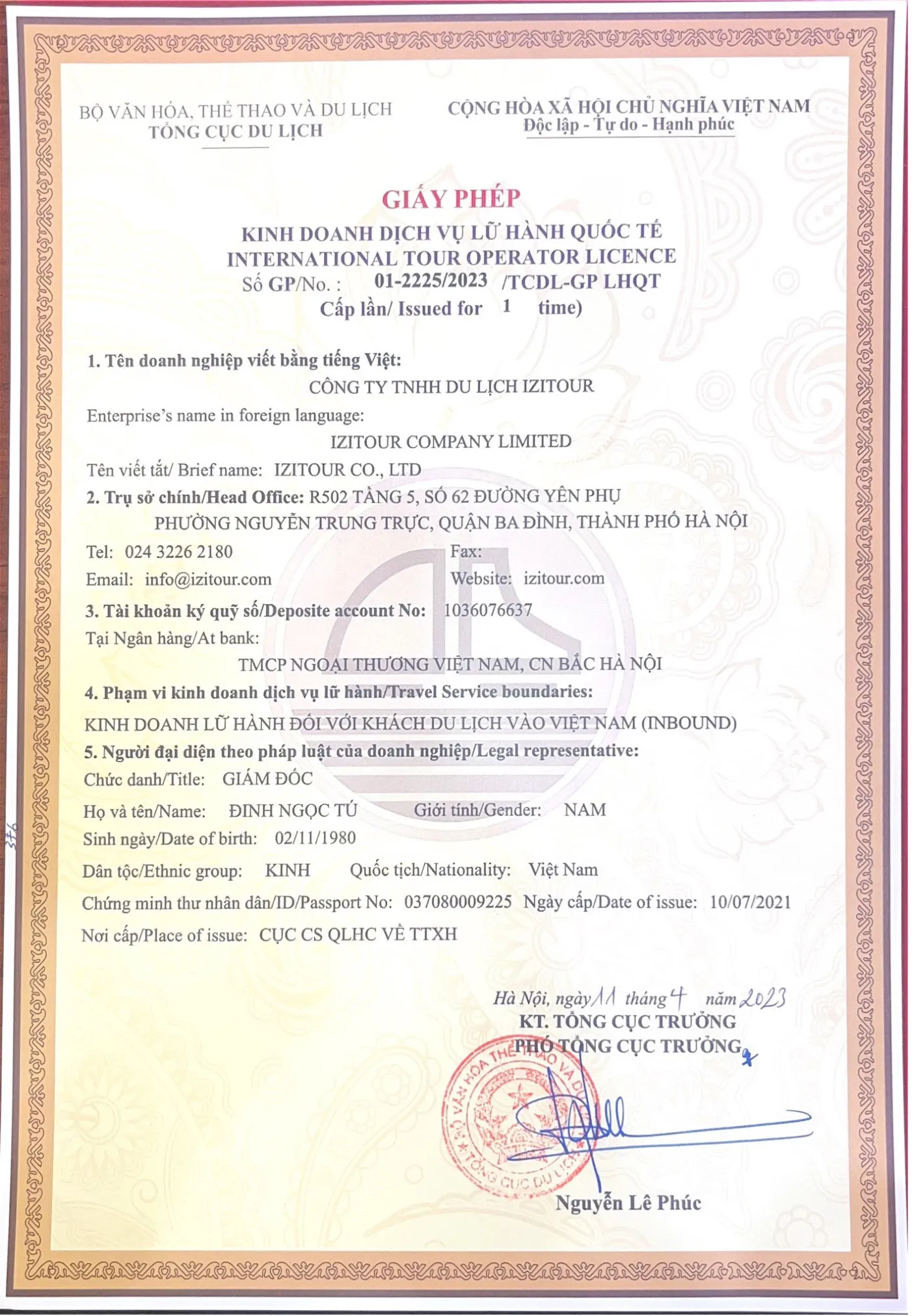Ho Chi Minh Mausoleum, also known as President Ho Chi Minh Mausoleum, is a mausoleum located at Ba Dinh Square, Vietnam. It serves as the resting place of Vietnamese leader Ho Chi Minh, whose preserved body has been on public display since 1975.
President Ho Chi Minh, known by a dear name to the Vietnamese people as Uncle Ho, is one of the greatest leaders that Vietnam has ever produced. He sacrificed all his life (60 years) for his people and was wholeheartedly devoted to the mission of liberating his nation.
He passed away in 1969; 4 years later (1973), the construction of his mausoleum was started and finished on May 16, 1975, and was inaugurated on August 29, 1975. For years, Ho Chi Minh Mausoleum has become a must-visit site not only for Hanoians but also for tourists traveling to Hanoi.
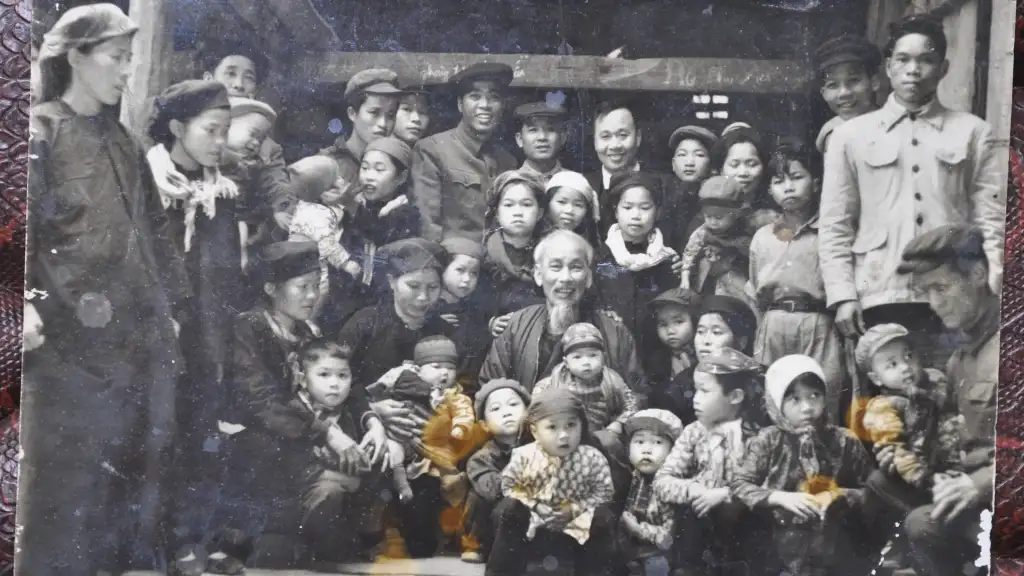
- 1. Ho Chi Minh Mausoleum architecture
- 2. The unique feature of Ho Chi Minh Mausoleum
- 3. Things to do when visiting Ho Chi Minh Mausoleum
- 4. Best time to visit Ho Chi Minh Mausoleum
- 5. How to get to Ho Chi Minh Mausoleum
- 6. Things to notice while visiting Ho Chi Minh Mausoleum
- 7. Other attractions near Ho Chi Minh Mausoleum
1. Ho Chi Minh Mausoleum architecture
Ho Chi Minh Mausoleum is 21.6 meters high and 41.2 meters wide with 3 layers. It is designed to be highly durable, and resistant to bombs and earthquakes of magnitude 7 on the Richter scale, and there are also special flood protection works. The outer frame of the mausoleum is covered with gray granite and in the middle stands out the words "PRESIDENT HO CHI MINH" in plum-colored pink stone.
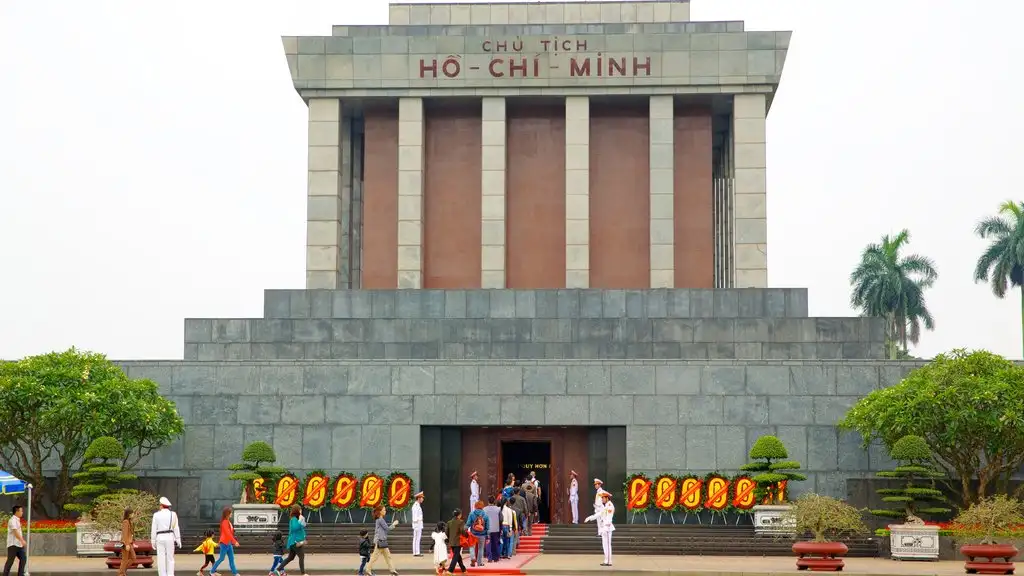
2. The unique feature of Ho Chi Minh Mausoleum
One thing you can say about Ho Chi Minh Mausoleum is that it is very “Vietnamese”, as construction materials were sent from many regions in Vietnam.
The inscription of President Ho Chi Minh is made of dark red jade from Cao Bang. The mausoleum door is made from the precious woods of the Central Highlands. The lobby is covered with pink and red veined granite, highlighting the words "Nothing is more precious than Independence and Freedom" with Ho Chi Minh's signature plated in gold.
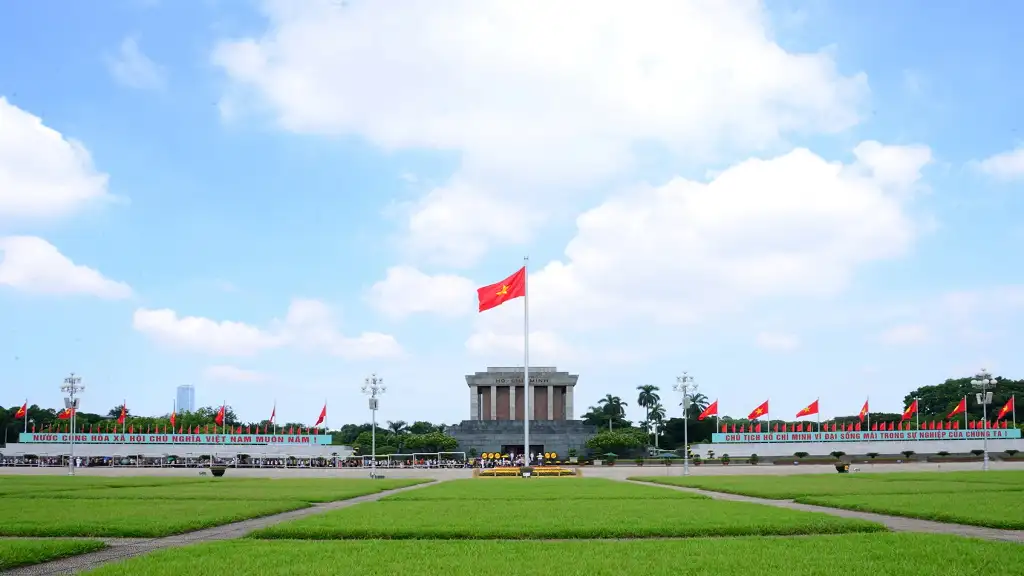
The 200 sets of doors in the mausoleum are made from precious woods sent by the people of the South, Central Highlands, Quang Nam - Da Nang, and Truong Son, and implemented by carpentry artisans of Nam Ha, Ha Bac, and Nghe An. The lawn in front of the mausoleum includes 18,000 m2 of ginger grass, a native grass in the South of Vietnam.
79 sago palms are planted in the front and the back of the mausoleum, representing President Ho Chi Minh's age. On the south and north sides of the mausoleum are two bamboo groves - the tree symbolizing Vietnam.
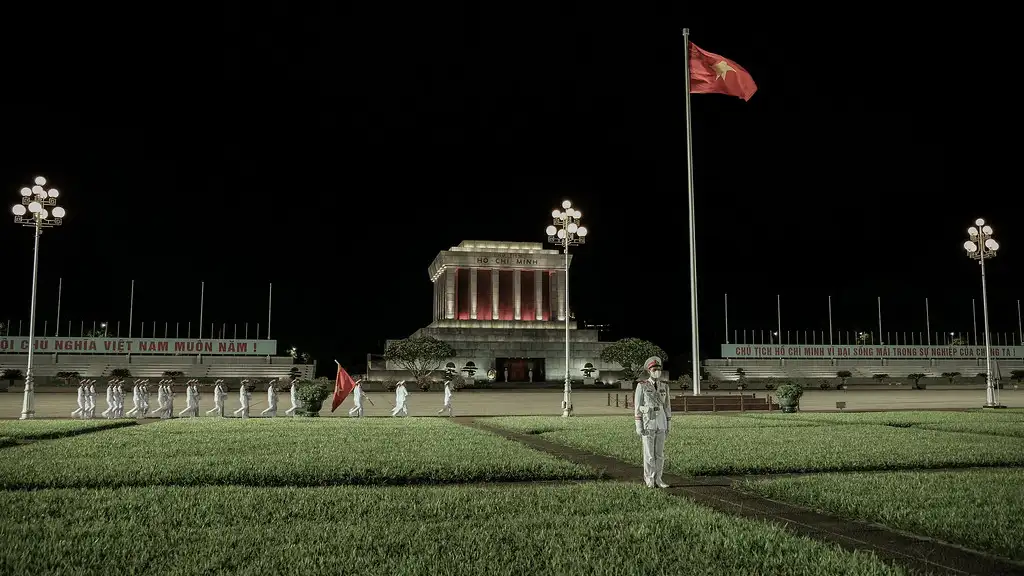
In the middle of the mausoleum is the room where the Unclo Ho body is placed, covered with Ha Tay marble. The two national flags and a large party flag on the wall are created from 4,000 pieces of Thanh Hoa rubies.
Ho Chi Minh Mausoleum has a square shape. Each side is 30 m long, the south and north sides have two 65 m long areas for guests during major holidays. In front of the mausoleum is Ba Dinh Square with a space for parades.
3. Things to do when visiting Ho Chi Minh Mausoleum
Go on a tour of the mausoleum
Many typical species of plants and flowers from regions across the country are planted on the grounds of the mausoleum. Ba Dinh Square in the front was the place where the last Vietnam Declaration of Independence was read. And obviously, tourists should go inside the building to see the marvelous architecture with their own eyes.
Ho Chi Minh Mausoleum tickets:
- Vietnamese: Free
- Foreign tourists: 25.000VND (~ 1 USD) per person.
Participate in the flag-raising and flag-lowering ceremony
This ceremony is a national ceremony performed every day in front of the President's mausoleum.
The flag-hoisting group departs from behind President Ho Chi Minh's Mausoleum. The military flag is brought to the front, leading a team of 34 members, representing the first 34 soldiers of the Armed Propaganda Brigade for the Liberation of Vietnam (the precursor of the People's Army of Vietnam); they then walk toward the flagpole in the playing of the national anthem.
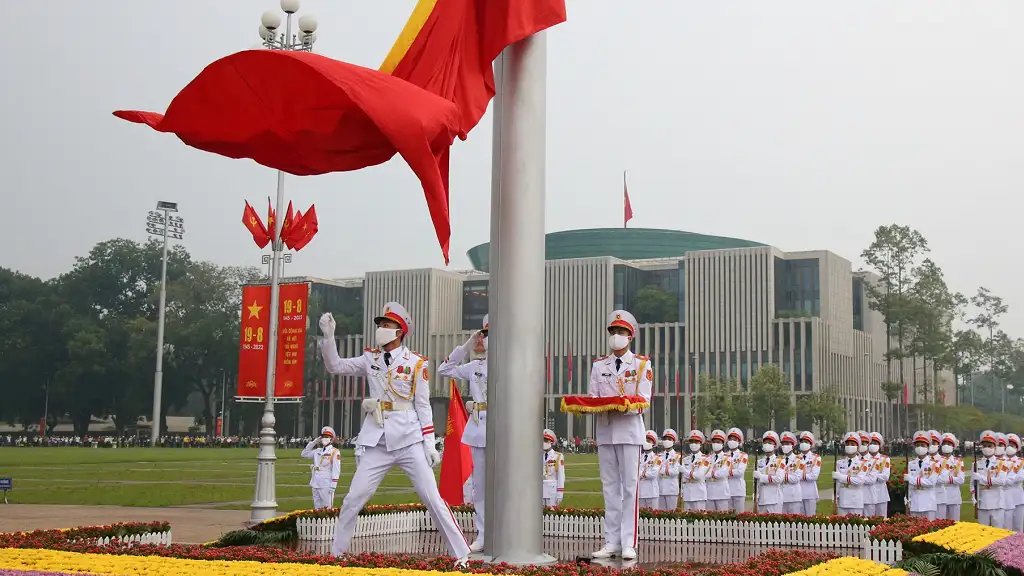
Flag raising ceremony: starts at 6:00 a.m. in summer and 6:30 a.m. in winter.
Flag lowering ceremony: starts at 9:00 p.m. daily.
Drop by Ho Chi Minh’s Stilt House
Ho Chi Minh's stilt house was inaugurated on May 17, 1958, on his 68th birthday, and is located in the Presidential Palace Relics Area.
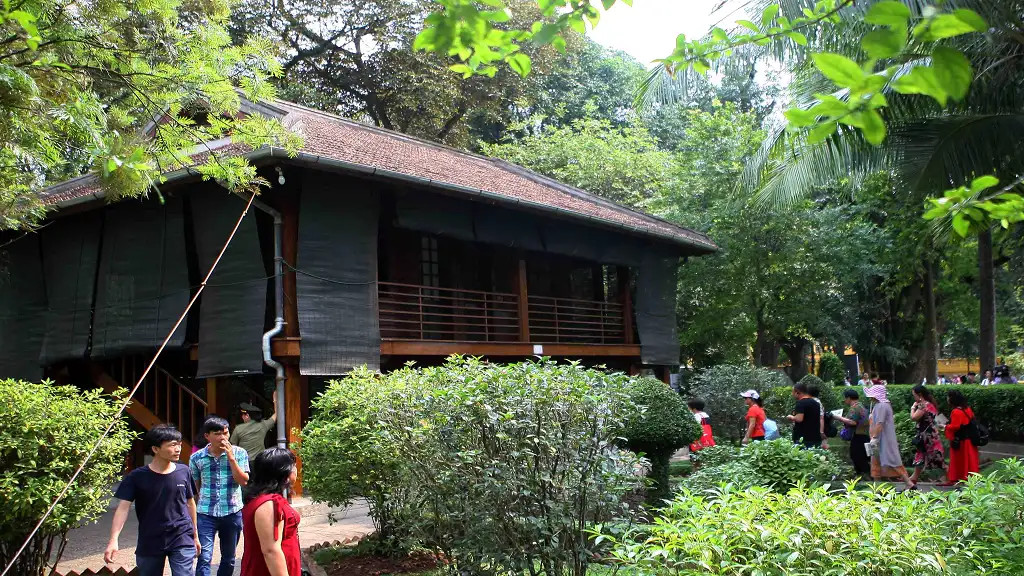
This is where he spent most of his day living and working during war times. Besides, the place is also used to welcome heads of state, political delegations, and millions of overseas Vietnamese and compatriots across the country.
Visit Ho Chi Minh Fish Pond
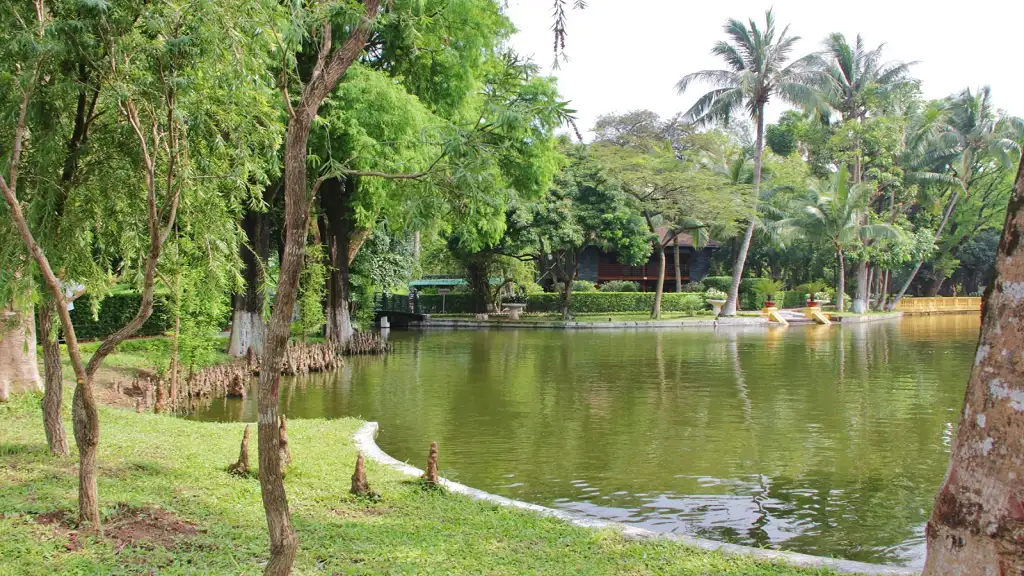
The pond surface is 3,320m2 wide, and the average depth is 2m with 16 species of fish.
Scout the Ho Chi Minh Museum
Ho Chi Minh Museum is considered the largest museum in Vietnam displaying documents and artifacts about President Ho Chi Minh.
It is the ideal spot for those who want to understand more about the life of Uncle Ho and all the things he did for the Vietnamese people.
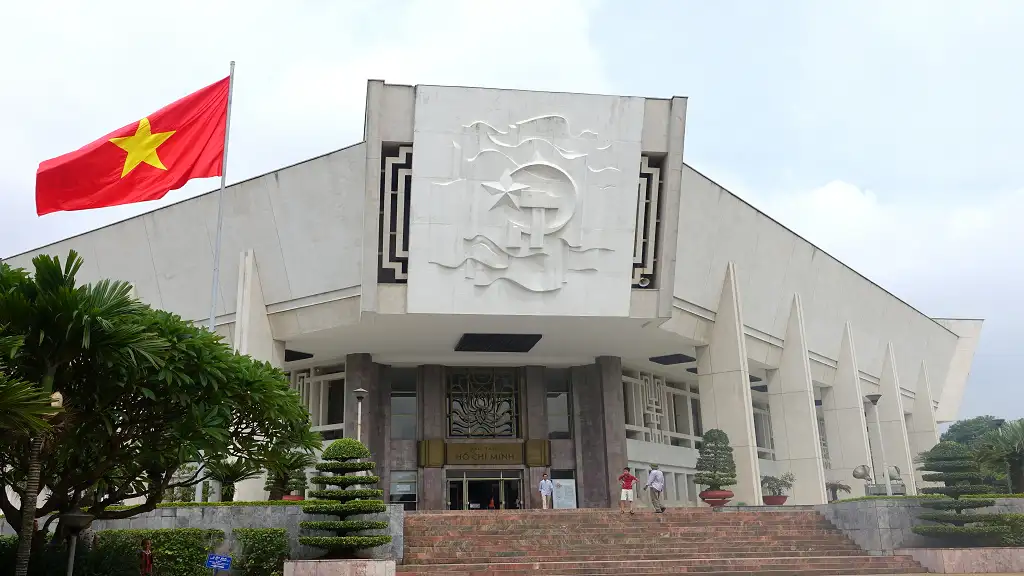
Visit One Pillar Pagoda
One Pillar Pagoda is one of the temples with the most unique architecture in Asia and a symbol of Hanoi’s thousand-year history.
It is located near the Ho Chi Minh Museum and Ho Chi Minh Mausoleum.
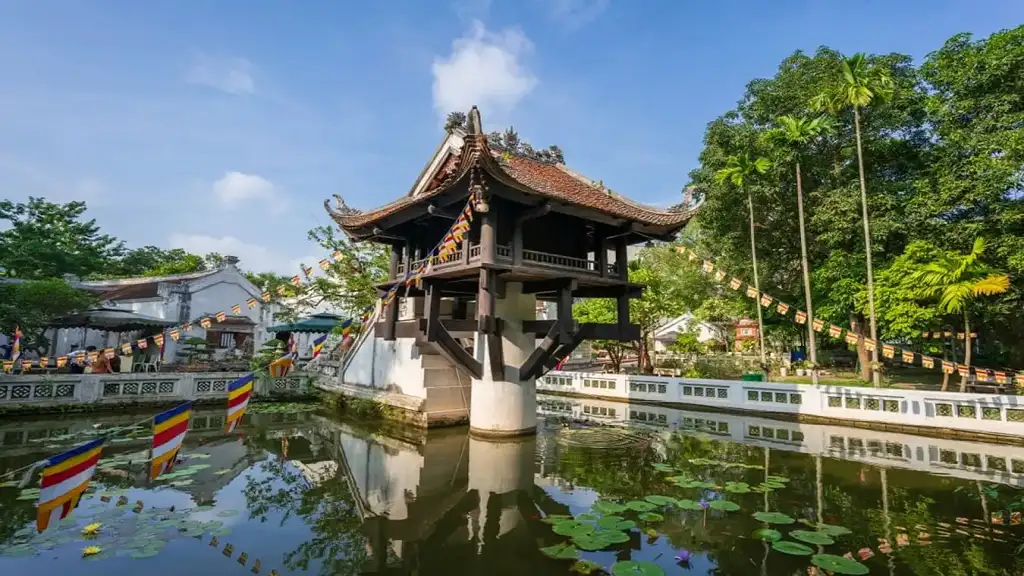
4. Best time to visit Ho Chi Minh Mausoleum
Schedule and opening hours of Ho Chi Minh Mausoleum
In the summer (April - October):
Ho Chi Minh mausoleum is open from 7:30 AM to 10:30 AM
On Saturdays, Sundays, and other holidays, the mausoleum is open from 7:30 AM to 11:00 AM
In winter (November - March next year):
The mausoleum is open from 8:00 AM to 11:00 AM.
For Saturdays, Sundays, and holidays, the mausoleum is open from 8:00 AM to 11:30 AM
The mausoleum is usually open every morning of the week except Monday and Friday. However, on special days such as the first day of the Lunar New Year, May 19 (his birthday), and September 2 (Independence Day) that fall on a Monday or Friday, it will still be open.
In addition, to choose more precisely, please check out the best time to visit Hanoi.
5. How to get to Ho Chi Minh Mausoleum
Hanoi has a convenient transportation system with a variety of vehicles. Tourists can reach Ho Chi Minh Mausoleum by bus (lines 09, 18, 22, 23, 33, 45, 50), rental private cars/motorbikes, taxis, Grab, etc.
Parking lots for private vehicles:
- Ho Chi Minh Museum parking lot (No. 19A, 19B Ngoc Ha Street)
- Ngoc Ha public parking lot
- And many other places on Ngoc Ha St., Hoang Dieu St., Hung Vuong St., Le Hong Phong St., Van Cao St., and Quan Ngua Sports Palace.
6. Things to notice while visiting Ho Chi Minh Mausoleum
President Ho Chi Minh is a loved and influential historical figure in Vietnam. Therefore, it would be nice if you take some of these notes:
- Do not wear clothes that are too short or revealing, please cover your knees and shoulders. Take your hat off when entering the mausoleum.
- Keep silent and follow the instructions of the staff.
- You can bring a phone or camera, but you are not allowed to take pictures or record videos in prohibited areas, especially inside the mausoleum.
- Children must be over 3 years old.
People also read: Best Ideas for a Hanoi Photography Tour
7. Other attractions near Ho Chi Minh Mausoleum
Ho Chi Minh Mausoleum is located near many must-visit attractions in Hanoi, which can be very convenient for visitors to let loose.
Bac Son monument
Only 1.5km from the Ho Chi Minh Mausoleum, the Bac Son monument was the idea of the architect Le Hiep. It was built to recognize soldiers who sacrificed their lives for their country. This is also the first work that gave Mr. Le Hiep the awards of State Award for Literature and Arts and the National Award for Architecture.
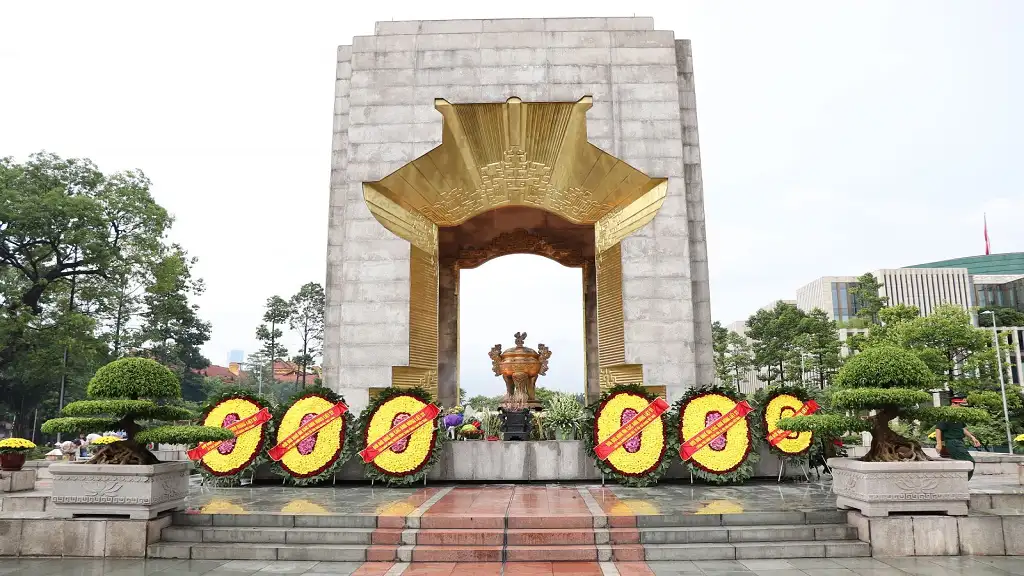
Imperial Citadel of Thang Long
The Imperial Citadel of Thang Long was listed as a UNESCO World Heritage Site in 2010. After being excavated in 2004, people found the grounds of ancient palaces, ponds, and wells. Archaeologists also discovered bronze coins, and ceramics from China and many places in Asia.
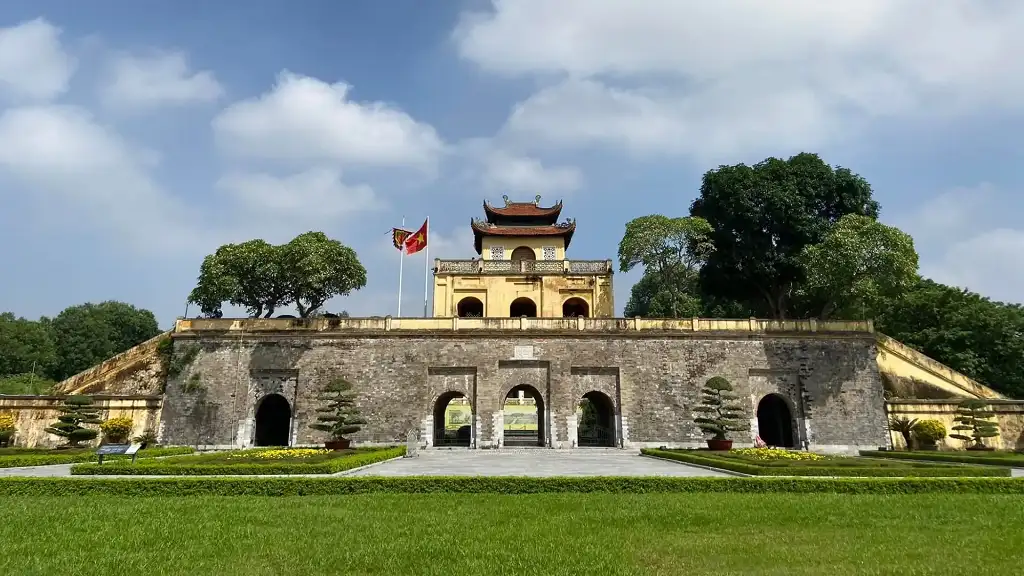
Hoa Lo Prison
Hoa Lo Prison, one of many French buildings in Hanoi, was used to detain many great Vietnamese revolutionaries during the Indochina War and American pilots during the Vietnam War.
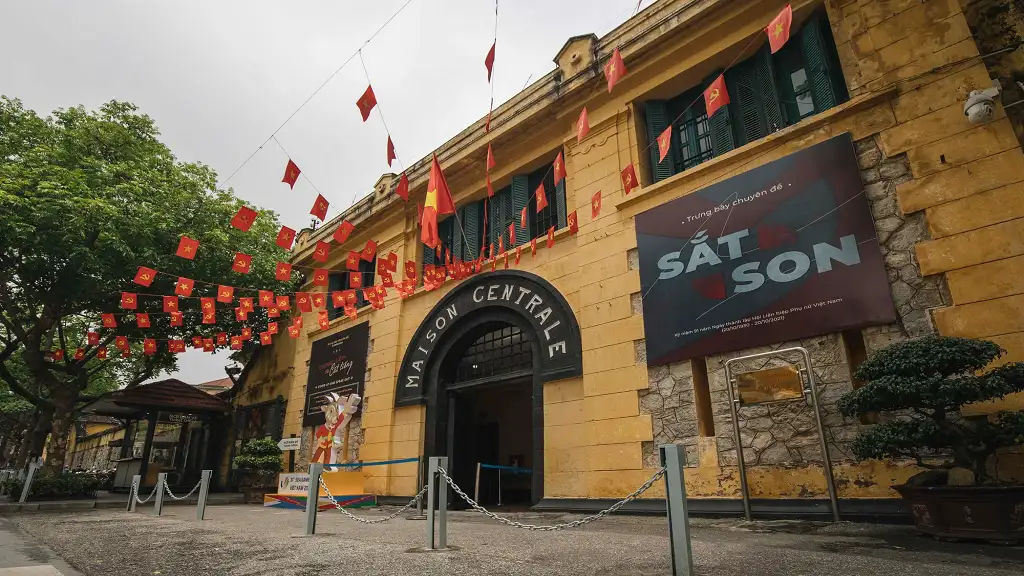
Hanoi Flag Tower and Military Museum
The construction of the tower began in 1805 during the Nguyen Dynasty and took 7 years to complete. Since then, over more than 200 years of history, the Hanoi Flag Tower has been associated with many ups and downs of the capital.
It is located on the grounds of the Military History Museum - one of the national museums in Hanoi and the leader in the Military Museum system, currently storing and displaying more than 150,000 documents, artifacts, and 4 National Treasures relating to Vietnamese military history.
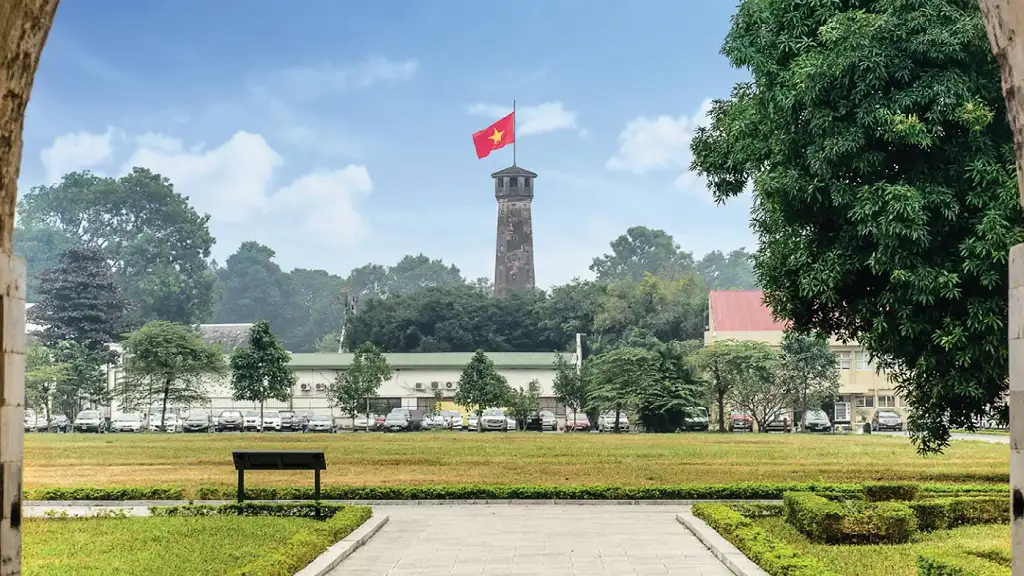
Hanoi’s best places to eat
There are many, many, many places to eat near Ho Chi Minh Mausoleum. The list ranges from restaurants with authentic local cuisine, European restaurants, vegetarian restaurants, Indian restaurants, Pho restaurants, Bun Cha (kebab rice noodles) restaurants, Cha ca (grilled chopped fish), etc., to street foods.
We hope you enjoy your trip to Vietnam, especially in Hanoi, with the Ho Chi Minh Mausoleum and vicinities. If you have any more questions about Ho Chi Minh Mausoleum tours or Hanoi tours, feel free to let us know via email: [email protected] or Whatsapp: +84 382 536 266 for instant support, free consultations, and receiving the best quote/promotions.
See more related articles:
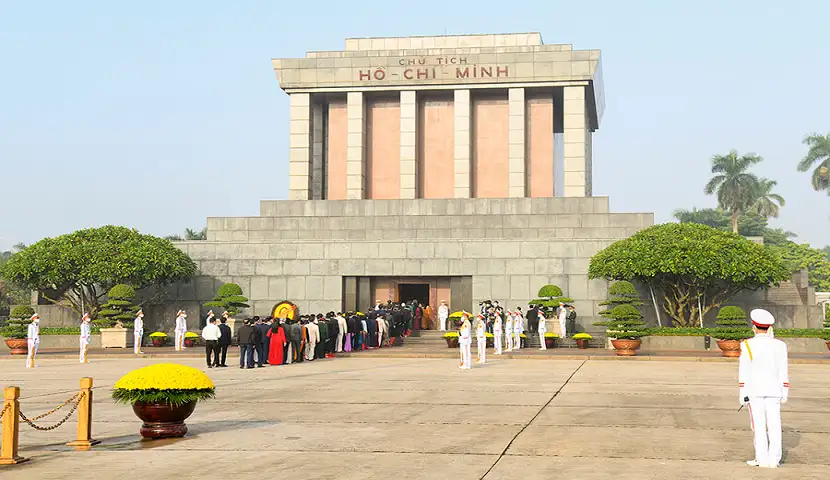
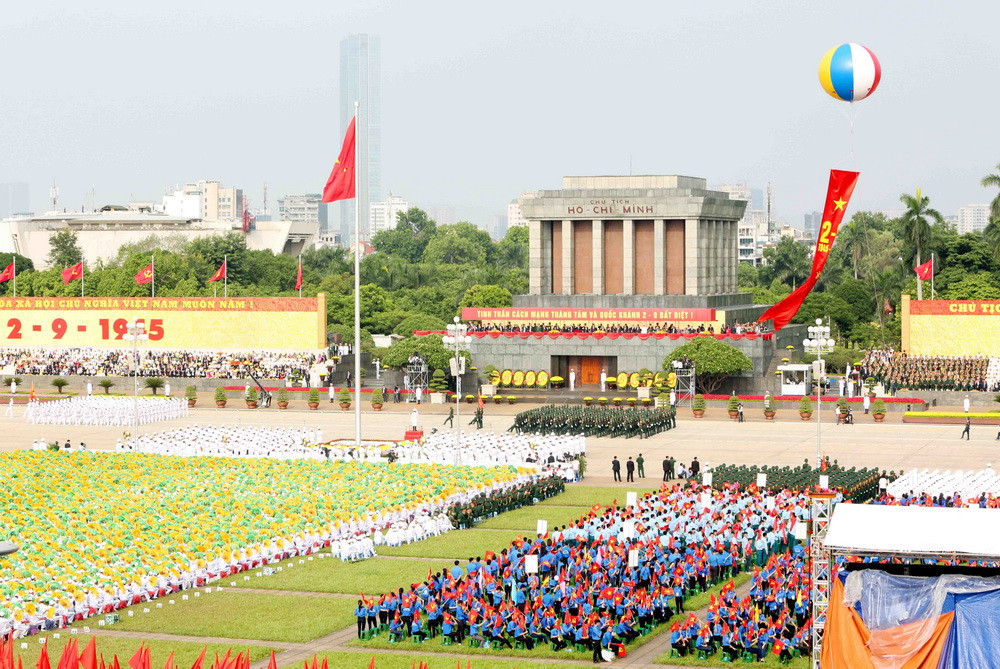
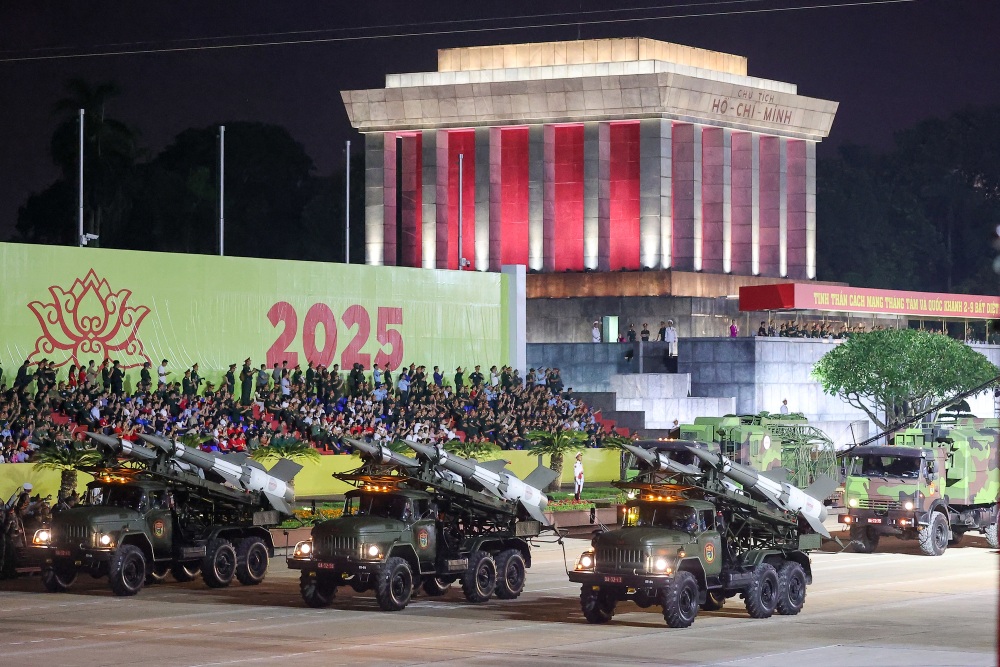
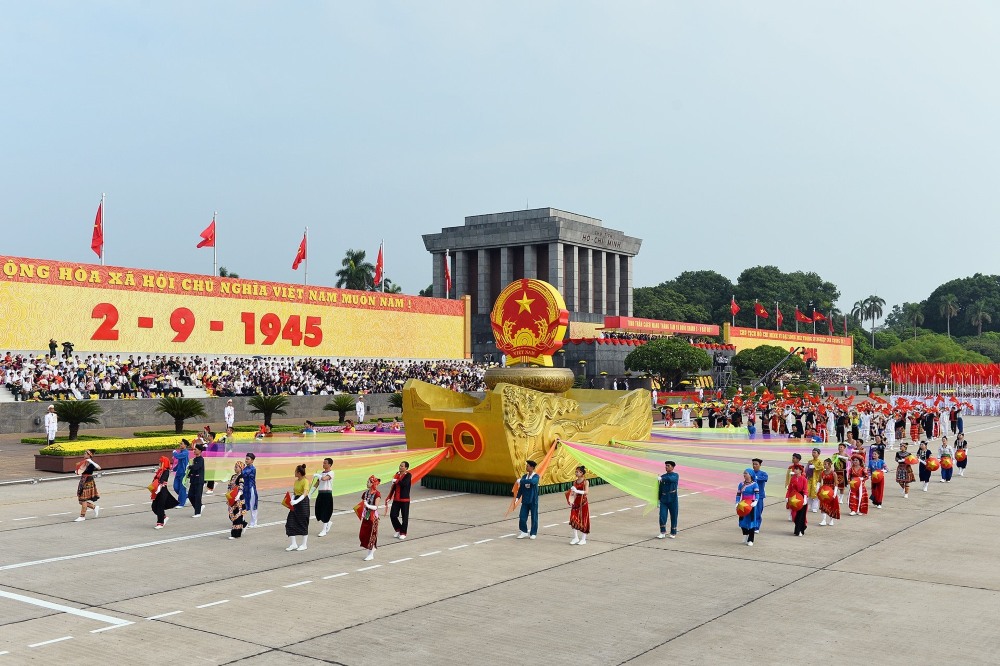
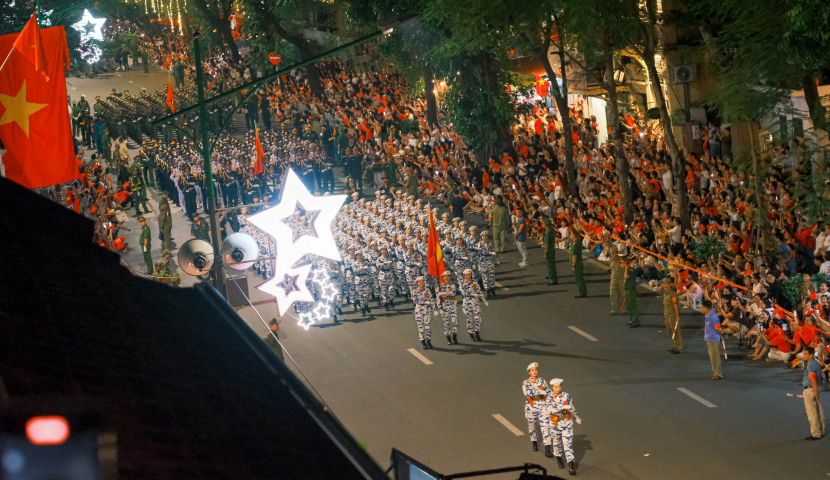






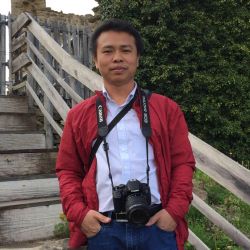
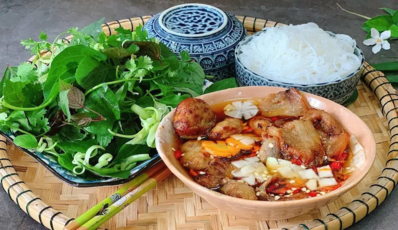
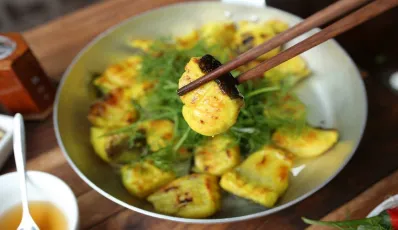
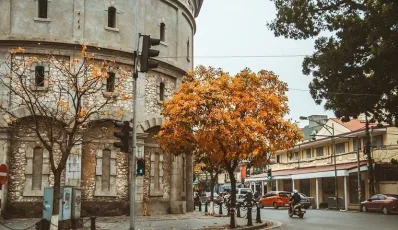

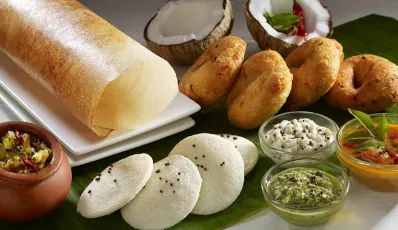
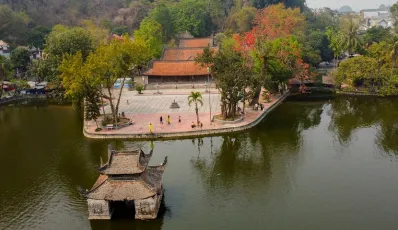
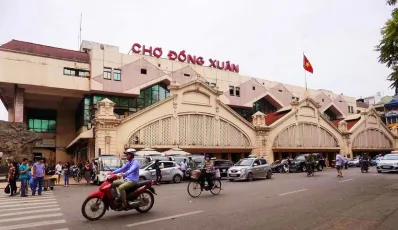
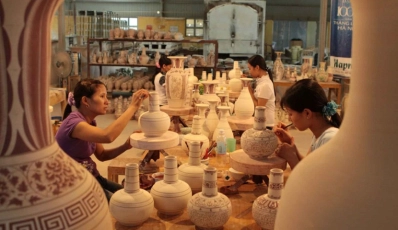
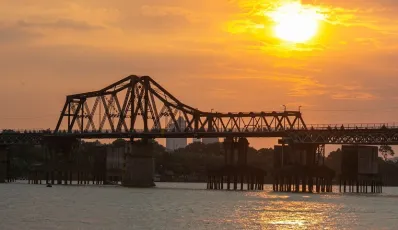

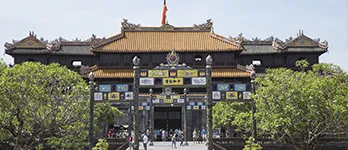
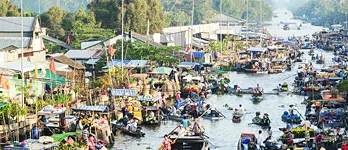

 TRAVELERS' CHOICE 2025
TRAVELERS' CHOICE 2025 